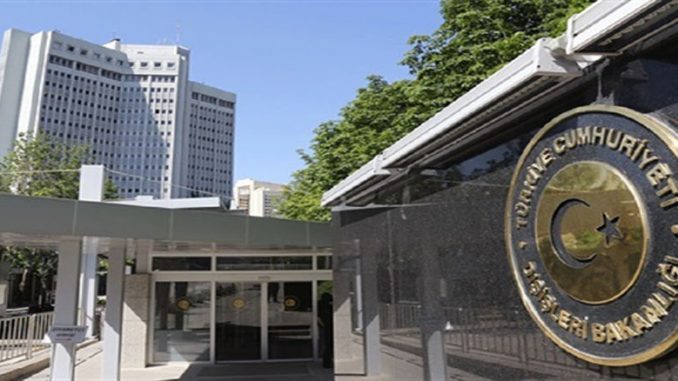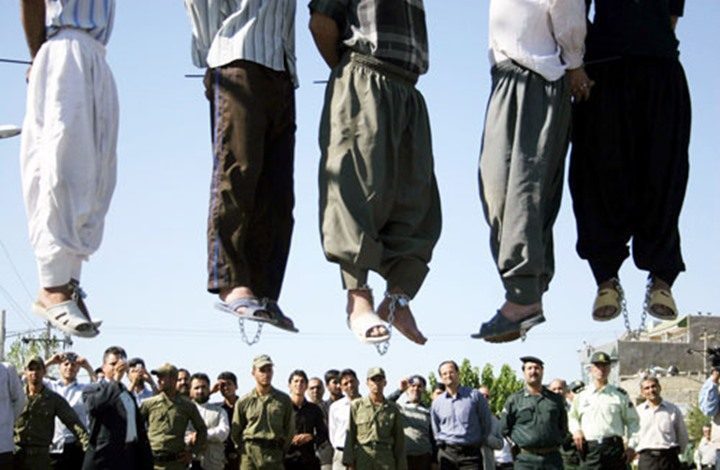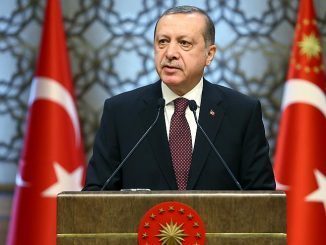
Instead of pressing countries which break conventions, EU hides behind solidarity to protect them, says Turkish Foreign Ministry.
Turkey’s Foreign Ministry Tuesday slammed top EU officials’ “short-sighted” statements on the crisis over EU countries’ recent blockade of Turkish government ministers.
“The EU’s statements, instead of pressing countries who violate diplomatic agreements and laws, are calling on our country to refrain from excessive statements and actions, thus paving the way for xenophobia and anti-Turkish moves,” said the ministry in a statement.
The ministry added that statements by EU foreign policy chief Federica Mogherini and Commissioner for Enlargement Negotiations Johannes Hahn “include incorrect evaluations of the issue and try to link separate matters.”
The ministry also said that instead of sending a “strong message” to countries which violate the Vienna Convention and the European Convention of Human Rights, EU countries are “hiding behind the excuse of countries’ solidarity to protect the Netherlands,” which blocked the ministers, after similar actions by Germany.
It added, “The EU’s statements are short-sighted and have no value for our country.”
The 1961 Vienna Convention on Diplomatic Relations lays out rules to ensure that diplomats can carry out their duties without fear of coercion or harassment by the host country.
On Saturday Foreign Minister Mevlut Cavusoglu was refused permission to land in the Netherlands and Family and Social Affairs Minister Fatma Betul Sayan Kaya was deported from the country after being blocked from entering Turkey’s Consulate in Rotterdam.
When Turkish citizens in Rotterdam tried to peacefully protest, they were met by police using batons, dogs and water cannons, in what some analysts called a disproportionate use of force.
The incidents drew strong criticism from Ankara, including diplomatic notes sent to the Netherlands in protest.
On Monday the EU’s Mogherini and Hahn said it “is essential to avoid further escalation and find ways to calm down the situation”.
EU practicing democracy selectively: Turkish Foreign Ministry
Turkey’s foreign ministry on March 14 slammed the European Union for telling Ankara to refrain from excessive statements, saying it was very grave for the bloc to stand by the Netherlands which it said has violated human rights and European values.
A row over Turkish campaigning in the Netherlands has escalated into a full-blown crisis between the two NATO allies. Ankara on March 13 said it would suspend high-level diplomatic relations after Dutch authorities prevented its ministers from speaking at rallies of expatriate Turks. The dispute also raised tensions with the EU which Turkey aspires to join.
In a statement, the Turkish foreign ministry said the European Union was exercising democratic values and basic rights and freedoms selectively and that its comments calling for calm had no value for Ankara.
In a statement, they said: “Decisions with regard to the holding of meetings and rallies in Member States are a matter for the Member State concerned, in accordance with the applicable provisions of international and national law.
“The European Union calls on Turkey to refrain from excessive statements and actions that risk further exacerbating the situation. Matters of concern can only be resolved through open and direct communication channels.”
European report on Turkish constitution change ‘unfair’: Bozdag
In the same context, Turkish Justice Minister Bekir Bozdag on Tuesday criticized a European report on Turkey’s upcoming referendum on constitutional change.
In a post on his official Twitter account, Bozdag said the report proves that the Venice Commission of Council of Europe was “siding with No voters” in the April 16 referendum.
“The report is not fair, objective, unbiased and technical, but completely political and subjective,” Bozdag said, adding that it lacked value for Turkey.
A delegation from the Venice Commission of Council of Europe visited Turkey last month to speak with Turkish officials about the plans for constitution amendments that would give wide-ranging executive powers to the president.
“Venice Commission or any other international organization will never influence the free will of the Turkish people,” Bozdag wrote Tuesday.
“Anyone who takes the Venice Commission report as a reference cannot have a correct opinion about the constitutional amendments in Turkey,” Bozdag said.
The Venice Commission comprises of constitutional experts and advises the Council of Europe, of which Turkey is a member.
The constitutional changes have been discussed since Recep Tayyip Erdogan was voted president in August 2014. The 18-article bill was passed by parliament in January, with 339 votes in favor — nine more than needed to put the proposal to a referendum.



